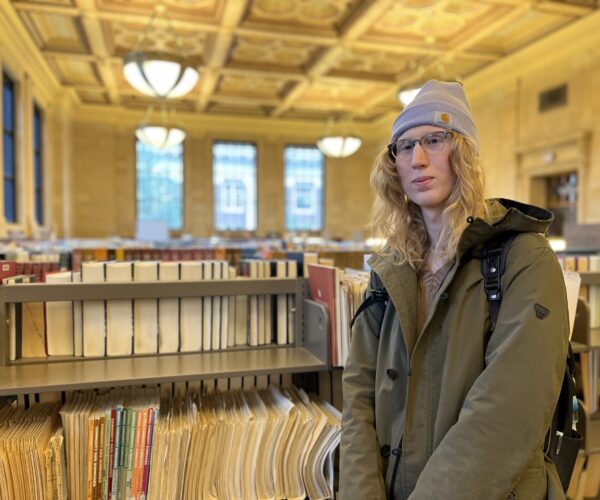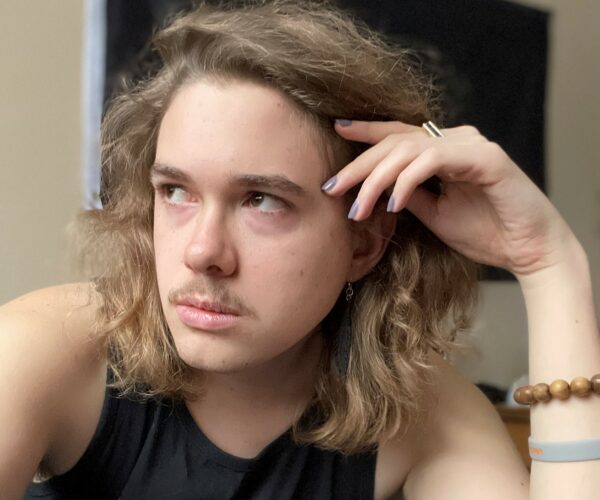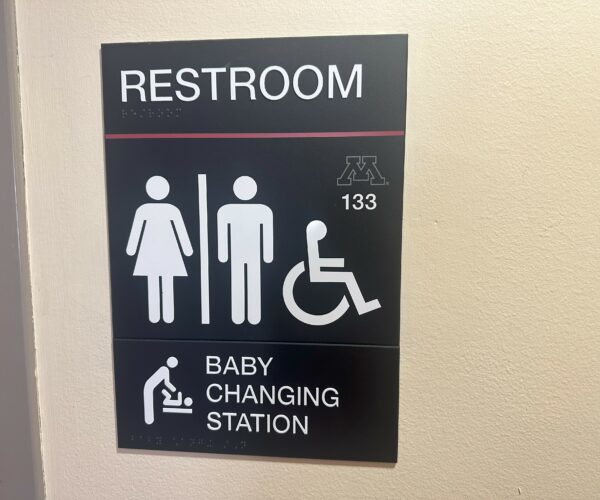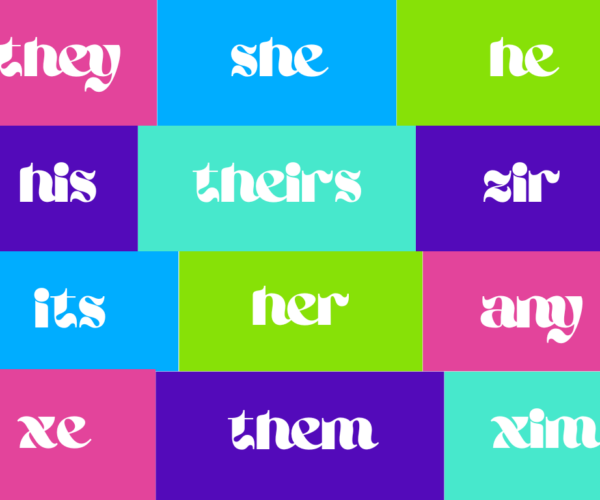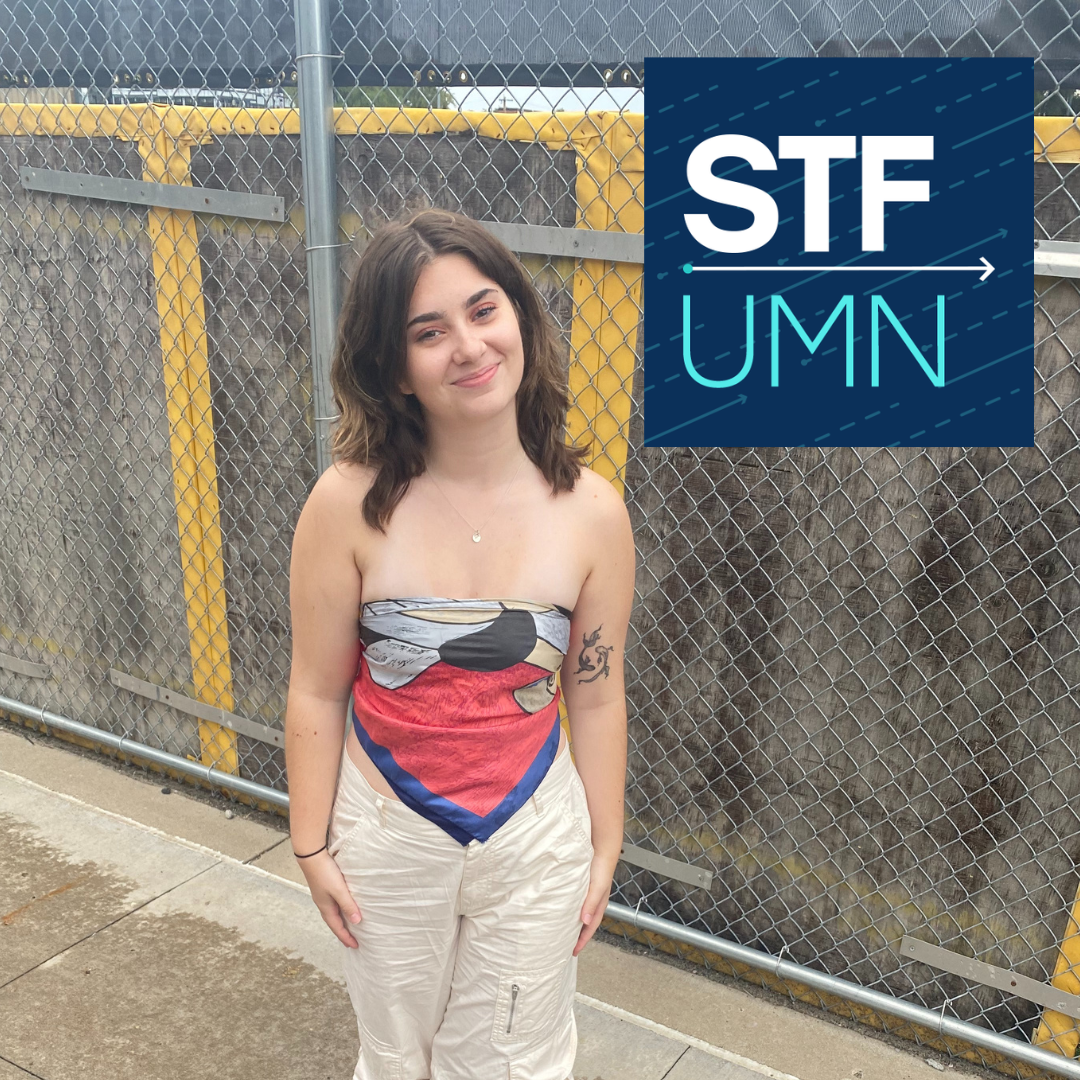By Amena Ahmed
Claire Witzmann is the president of the University’s chapter of She’s the First (STF) , an organization that aims to empower and educate girls who face poverty and other results of gender discrimination.
But Witzmann, 22, who is nonbinary, rejects the traditional, binary understanding of woman and girlhood that the club was built upon. So, she has vowed to lead the group with that in mind.
“The societal norm of being binary, to me, is mostly exclusive and wrong because I don’t believe anyone is only masculine or only feminine,” Witzmann said.
Witzmann’s leadership is not totally at odds with STF. The club, which lists affiliations with high schools and colleges across 21 countries on its website, has never rejected queer identities. But it hasn’t focused on them either.
Witzmann said she aims to hold discussions that create a more inclusive environment while still focusing on the club’s mission of “using a rights-based approach to empower and educate girls globally.”
“In the end, the people who end up receiving our help are very much reinforced by the binary,” she said. “However, our meetings now focus on being very intersectional. We go beyond gender and talk about race, ability, and the possible LGBTQ+ communities within the girls that we help.”
Witzmann said the group holds discussions about LGBTQ+ issues that cover issues like why Pride Month advertisements can sometimes come across as performative, why pronouns are important to address and how to be a productive ally. This is in addition to other efforts that are more directly in line with STF’s mission, like holiday fundraisers for girls’ education.
As a result of holding discussions about intersectionality in STF meetings, Witzmann said the club is now more diverse than it had been under past leadership.
Lydia Abels, a member of STF, said Witzmann is the epitome of a supportive and inclusive leader.
“Claire sets a great example of how to be a calm and collective leader, even in the face of adversity,” Abels said. “She truly has everyone’s best interest at heart and creates a beautiful atmosphere that fosters opportunity and allows others to be themselves.”
Witzmann said she drew her leadership inspiration from her own supportive friendships, which allow her to feel safe and open with her identity.
“I always want our members to know that STF is a safe space. And even though they might’ve had bad experiences being a queer student on campus, I want them to know it will always be a safe place for them,” Witzmann said. “This doesn’t mean we are ignoring the binary enforced by the organization, but rather broadening the amount of topics we cover for the sake of inclusivity and recognition.”
Witzmann said she came to terms with her identity during the first COVID-19 lockdown. Months of being home alone led her to the realization that she was bisexual, even though all of her past partners were male.
Sometimes, the biggest obstacles during the beginning of her journey were her own thoughts and feelings of self-doubt, she said.
“There are always those internalized fears you have that come along with it, like the internalized and deep-rooted homophobia that’s in everyone,” she said. “I feel like that pressure used to be scary to me, but I really love who I am now.”
Another part of Witzmann’s motivation for promoting LGBTQ+ inclusion in STF derives from her experience as a queer student majoring in mechanical engineering — a program which she says is dominated by men and has few queer students.
“[Feeling underrepresented] has taken some getting used to,” she said. “But being in STEM and being queer shouldn’t be exclusive, I actually think they go really well together because it brings a different perspective that has been missing from the field.”
Witzmann said she hopes to see more queer representation in STEM fields in the future.
As for right now, she said she fears discrimination and wants to be taken seriously in the workplace. She hopes for a day where she can share her identity “without it seeming like a big deal.”
“While I sometimes worry about the future, I know that we as a community are capable of anything,” Witzmann said. “I believe everyone can find their own support group on campus and if not, I hope they too find a way to lead their own for others and spread the love just like I did.”
